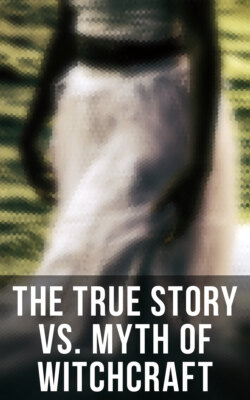Читать книгу The True Story vs. Myth of Witchcraft - William Godwin - Страница 142
На сайте Литреса книга снята с продажи.
Causes of Human Credulity.
ОглавлениеMeanwhile, though the stories above related are extracted from books purely and properly of fiction, they exhibit so just a delineation of Eastern manners and habits of mind, that, in the defect of materials strictly historical, they may to a certain degree supply the place. The principal feature they set before us is credulity and a love of the marvellous. This is ever found characteristic of certain ages of the world; but in Asia it prevails in uninterrupted continuity. Wherever learning and the exercise of the intellectual faculties first shew themselves, there mystery and a knowledge not to be communicated but to the select few must be expected to appear. Wisdom in its natural and genuine form seeks to diffuse itself; but in the East on the contrary it is only valued in proportion to its rarity. Those who devoted themselves to intellectual improvement, looked for it rather in solitary abstraction, than in free communication with the minds of others; and, when they condescended to the use of the organ of speech, they spoke in enigmas and ambiguities, and in phrases better adapted to produce wonder and perplexity, than to enlighten and instruct. When the more consummate instructed the novice, it was by slow degrees only, and through the medium of a long probation. In consequence of this state of things the privileged few conceived of their own attainments with an over-weening pride, and were puffed up with a sense of superiority; while the mass of their fellow-creatures looked to them with astonishment; and, agreeably to the Oriental creed of two independent and contending principles of good and of evil, regarded these select and supernaturally endowed beings anon as a source of the most enviable blessings, and anon as objects of unmingled apprehension and terror, before whom their understandings became prostrate, and every thing that was most appalling and dreadful was most easily believed. In this state superstition unavoidably grew infectious; and the more the seniors inculcated and believed, the more the imagination of the juniors became a pliant and unresisting slave.
The Mantra, or charm, consisting of a few unintelligible words repeated again and again, always accompanied, or rather preceded, the supposed miraculous phenomenon that was imposed on the ignorant. Water was flung over, or in the face of, the thing or person upon whom the miraculous effect was to be produced. Incense was burned; and such chemical substances were set on fire, the dazzling appearance of which might confound the senses of the spectators. The whole consisted in the art of the juggler. The first business was to act on the passions, to excite awe and fear and curiosity in the parties; and next by a sort of slight of hand, and by changes too rapid to be followed by an unpractised eye, to produce phenomena, wholly unanticipated, and that could not be accounted for. Superstition was further an essential ingredient; and this is never perfect, but where the superior and more active party regards himself as something more than human, and the party acted upon beholds in the other an object of religious reverence, or tingles with apprehension of he knows not what of fearful and calamitous. The state of the party acted on, and indeed of either, is never complete, till the senses are confounded, what is imagined is so powerful as in a manner to exclude what is real, in a word, till, as the poet expresses it, “function is smothered in surmise, and nothing is, but what is not.”
It is in such a state of the faculties that it is entirely natural and simple, that one should mistake a mere dumb animal for one’s relative or near connection in disguise. And, the delusion having once begun, the deluded individual gives to every gesture and motion of limb and eye an explanation that forwards the deception. It is in the same way that in ignorant ages the notion of changeling has been produced. The weak and fascinated mother sees every feature with a turn of expression unknown before, all the habits of the child appear different and strange, till the parent herself denies her offspring, and sees in the object so lately cherished and doated on, a monster uncouth and horrible of aspect.
143. Gibbon, Chap. VIII.
144. This word is of Sanscrit original.
145. “They cut themselves with knives and lancets, till the blood gushed out upon them.” I Kings, xviii, 28.
146. Otherwise, Deeves.
147. D’Herbelot, Bibliothèque Orientale.
148. D’Herbelot, Bibliothèque Orientale.
149. It is in Selden’s Collection of Ballads in the Bodleian Library. See Letters from the Bodleian, Vol. I, p. 120 to 126.
